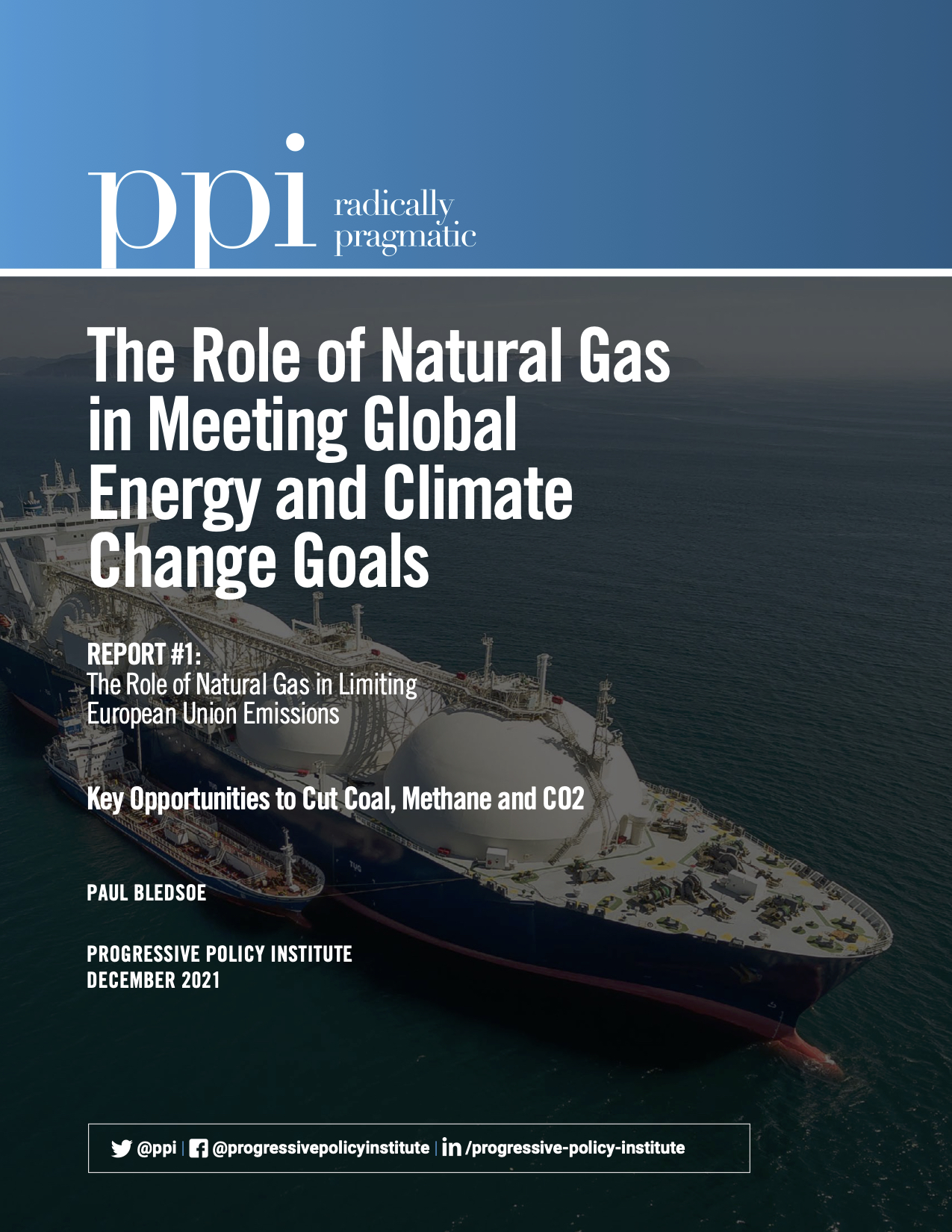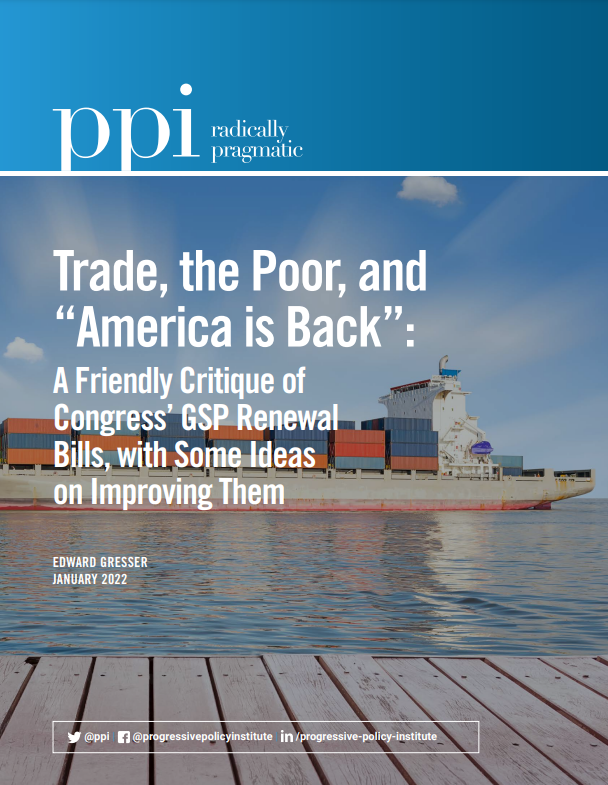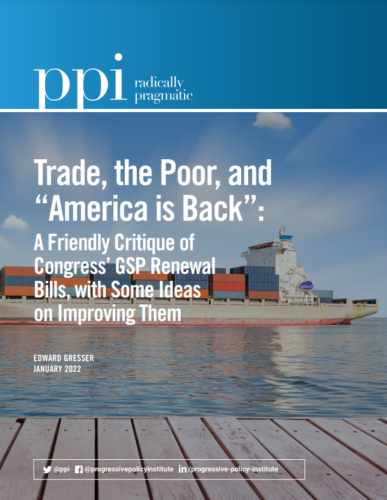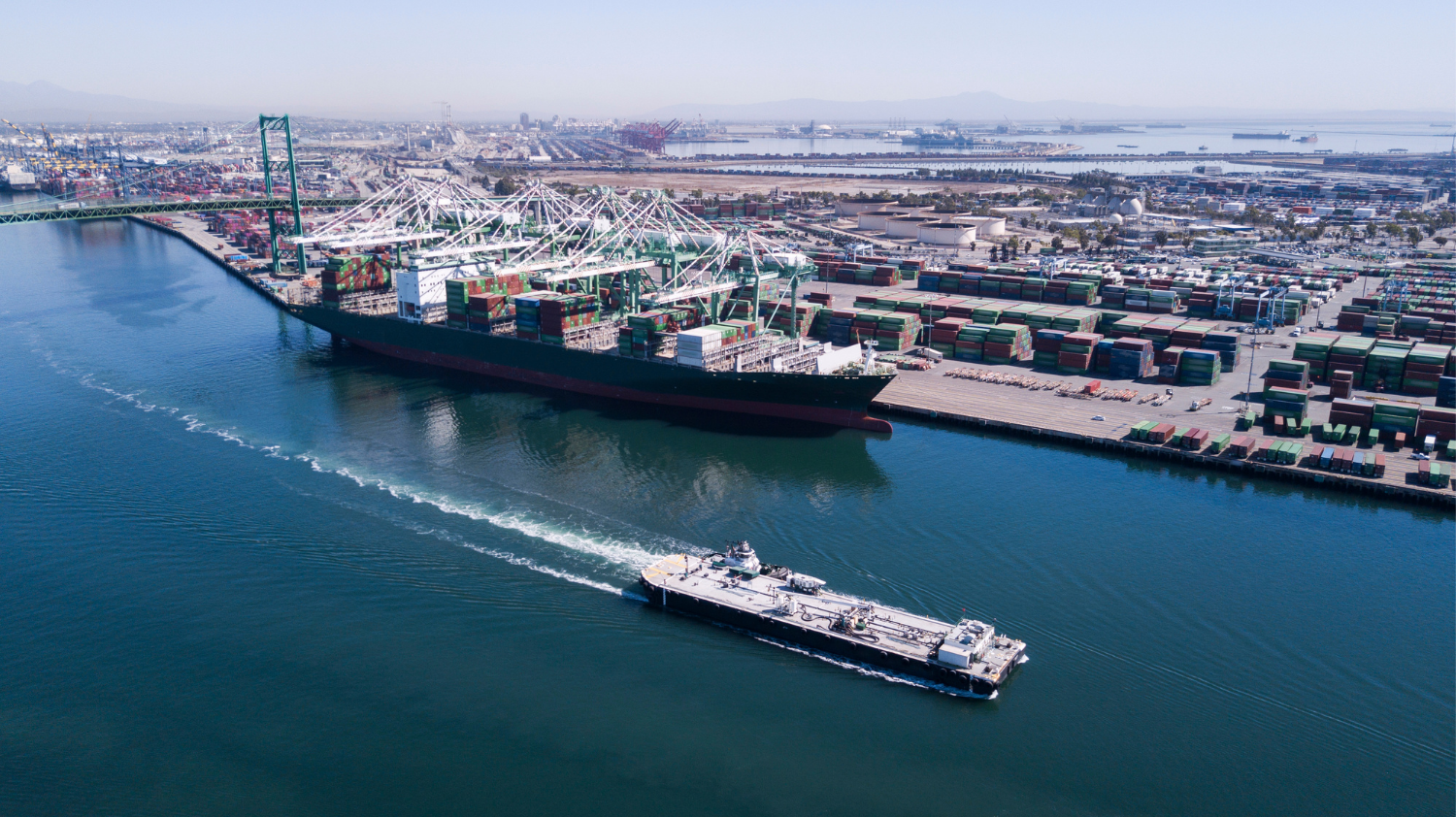FACT:
U.S. has lost 35,000 exporting businesses since the mid-2010s.
THE NUMBERS:
U.S. export share of GDP:
2021: 10.8%
2020: 10.2%
2019: 11.8%
2018: 12.3%
2014: 13.5%
WHAT THEY MEAN:
Three Census Bureau reports provoke some thoughts on the U.S.’ export economy, workers and pay, growth with and without inflation, and the next three years of policy:
(1) The “FT-900,” released Tuesday morning, is the Census’ regular monthly summary of the basic U.S. trade data, with figures on exports, imports, goods, services, countries, and so on. Tuesday’s edition covers December 2021, and is a good point for stock-taking as it covers the full year 2021, the Biden/Harris administration’s first year in office. This found U.S. exports at $2.53 billion: 2.1 million cars and $2 billion in sports and fishing equipment; 170 million cubic meters of liquefied natural gas; $59 billion in telecommunications, information, and computer services; 25 million tons of wheat; $5 billion in wine, liquors, and beer; $30 billion worth of medical devices, etc. This represents a $394 billion jump from $2.13 trillion in COVID-stricken 2020, which in one way is a very impressive pace of growth, unmatched since 2010 but in another way essentially brings exports back to the pre-COVID levels of $2.53 trillion in 2019 and $2.54 billion in 2018.
(2) The second report, out last November, is “U.S. Exporting Firms by Demographics”. This is a deep dive into the nature of the businesses that produce these things, using tax, trade, and other data for 2018 to provide a survey of the ownership, employment, payrolls, and foreign markets of 178,000* of that year’s 293,000 known U.S. exporters. Some findings:
* Exporters offer high employment and pay: Exporting businesses averaged 274 workers, at payroll per worker of $69,000. Non-exporters, by comparison, employed 14 workers on payroll at $44,000 per worker. About 16,500 exporting businesses are large, presumably publicly held forms (in Census’ terminology, “unclassifiable” by ownership type). Dropping these from the tables, U.S. exporters averaged employed 54 workers, on payroll at $64,210 per worker. The comparable figures for “unclassifiable by ownership type” non-exporters were 10 workers and $41,027 per worker. The sharpest pay premium appears to be among the 23,500 women-owned exporters: They average 38 workers at $61,000 in payroll per worker, as against 9 workers and $38,000 in women-owned non-exporting businesses.
* Diverse business ownership is a national asset: An ethnically and racially diverse business community appears to help the U.S. find customers and income abroad. As one example, about 1 in 12 U.S. exporters sell to Africa; for African American owned firms, the share is 1 in 7. A similar comparison from a different angle finds Hispanic-owned firms making up 5.5% of all U.S. exporters, but 10% of exporters to Latin America and 12% of exporters to Central America specifically.
(3) Finally, “Profile of U.S. Importing and Exporting Companies,” also from this past November (though in “preliminary” form, pending a final count in April) counts the total number of exporting businesses as of early 2020. It glumly reports 270,000 such firms, about 35,000 below the peak count of 305,000 in 2013/2014, and 23,000 below the 293,000 reported for 2016 and 2018. Mirroring this decline in numbers, the export sector’s place in the U.S. economy has diminished in recent years, falling as a share of GDP from a 13.5% peak in 2013 and 2014 to 11.8% in 2018, and then 10.3% of GDP in 2020 — the lowest level since 2006.

Against this long-term backdrop, the big jump in yesterday’s FT-900 is good news, but still leaves the U.S. exporting well short of the role it held five or 10 years ago.
What explains the erosion? And will it last? One obvious but presumably transient contributor is the impact of COVID-related economic closures (especially in the first half of 2020). These affected almost all exporting sectors, and are still powerful in “transport” and “travel” services, whose exports remain far below pre-COVID levels. Another is recent policy choices: Trump-era tariffs provoked direct retaliations against U.S. exporters, and may also, by raising the cost of parts and materials for American manufacturers and farmers, be contributing to a slower erosion of export competitiveness. Beyond this, and not yet felt, implementation of the Asia-based “Regional Closer Economic Partnership” — a 15-country Asia-Pacific trade agreement joining China, Japan, Korea, Australia, New Zealand, and the 10 ASEAN members, together accounting for about a third of all world imports outside the U.S. — presages a Pacific tariff tilt in favor of the cars, wines, fishing rods, wheat, etc. produced by U.S. competitors.
In sum, Census numbers say many good things about the U.S. export economy in 2021. And they suggest some ways for exporters might contribute more to both workers and macroeconomic health in the next few years. But they also offer grounds for concern, and reasons for energetic policy.
Note: PPI Trade and Global Markets staff thank Census staff for helping with interpretation of several of these releases, and more generally for their sustained excellence in statistical work in trade and other areas.
FURTHER READING
From Census
The “FT-900” series has the basic monthly trade figures, updated Tuesday for full-year 2021.
… and the accompanying “Historical Series” has a convenient one-page annual summary of imports, exports and balances from 1960 through 2021.
And “U.S. Exporting Firms by Demographics” looks deeply into 178,000 of 2018’s 293,000 exporting businesses* by owner type: male/female; race and ethnicity (with white, African American, Hispanic, Asian American, Native American, and Pacific Islander); veteran ownership; and 200 export markets ranging in scale from “Vanuatu” and to “Africa” to “EU-27” and “All Countries.” Available with data for 2018, 2017, 2012, and 2007.
* The 115,000 whose ownership couldn’t be accounted for include non-employing firms, agricultural producers, and businesses located in Puerto Rico and the U.S. insular territories.
The “Profile of Importing and Exporting Companies” looks at exporters and importers by size, with state-by-state figures, SMEs, 25 countries, sectors, etc.
Also on exporters, from two of Census’ sister Commerce Department agencies
Writing for the Minority Business Development Agency in 2015, Sharon Freeman reviews export opportunities and challenges for African American, Hispanic, Asian American, and Native American small businesses.
And the International Trade Administration summarizes research on the count and nature of “jobs supported by exports.”
And overseas
ASEAN announces entry into force for RCEP.
ABOUT ED
Ed Gresser is Vice President and Director for Trade and Global Markets at PPI.
Ed returns to PPI after working for the think tank from 2001-2011. He most recently served as the Assistant U.S. Trade Representative for Trade Policy and Economics at the Office of the United States Trade Representative (USTR). In this position, he led USTR’s economic research unit from 2015-2021, and chaired the 21-agency Trade Policy Staff Committee.
Ed began his career on Capitol Hill before serving USTR as Policy Advisor to USTR Charlene Barshefsky from 1998 to 2001. He then led PPI’s Trade and Global Markets Project from 2001 to 2011. After PPI, he co-founded and directed the independent think tank ProgressiveEconomy until rejoining USTR in 2015. In 2013, the Washington International Trade Association presented him with its Lighthouse Award, awarded annually to an individual or group for significant contributions to trade policy.
Ed is the author of Freedom from Want: American Liberalism and the Global Economy (2007). He has published in a variety of journals and newspapers, and his research has been cited by leading academics and international organizations including the WTO, World Bank, and International Monetary Fund. He is a graduate of Stanford University and holds a Master’s Degree in International Affairs from Columbia Universities and a certificate from the Averell Harriman Institute for Advanced Study of the Soviet Union.





















